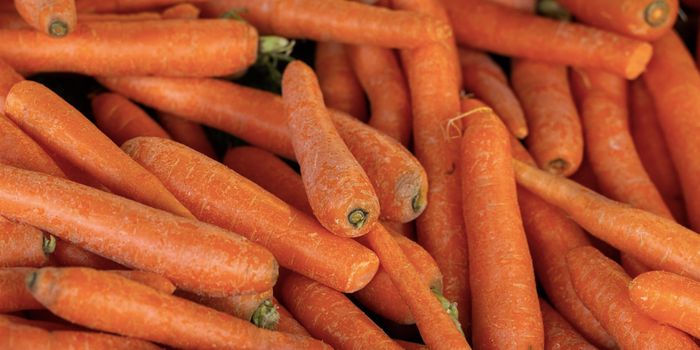Dogs Can Sniff Out COVID-19 Cases
Dogs help us in a lot of ways. Now they may help us get back to normal after the pandemic by using their exceptional abilities to detect odors, to sniff out cases of the coronavirus. While some agencies like airports are already testing the idea, researchers have now done a scientific study that demonstrated that trained detection dogs could identify COVID-19-positive samples with 96 percent accuracy. The findings were reported in PLOS One.
"This is not a simple thing we're asking the dogs to do," noted senior study author Cynthia Otto, the director of the University of Pennsylvania School of Veterinary Medicine Working Dog Center. "Dogs have to be specific about detecting the odor of the infection, but they also have to generalize across the background odors of different people: men and women, adults and children, people of different ethnicities and geographies."
Dogs had to be carefully trained, and the ideal training scenario would provide them with many samples, the researchers found in previous research. "We are collecting many more samples in that study - hundreds or more - than we did in this first one, and are hopeful that will get the dogs closer to what they might encounter in a community setting," Otto said.
Otto and colleagues have been training dogs to detect other medical problems, including ovarian cancer, for years. Now, study collaborators Ian Frank of the Perelman School of Medicine and Audrey Odom John of the Children's Hospital of Philadelphia were able to provide samples from adult and pediatric COVID-19 patients, and negative control samples from patients without the virus.
This study trained a set of Eight Labrador retrievers and a Belgian Malinois that were not involved in medical detection before this. The dogs were trained to identify a unique synthetic scent called a universal detection compound (UDC) and then had to pick that scent from a group of twelve for a reward. After the dogs could identify the UDC consistently, they were trained to distinguish between urine samples from patients that were positive and negative for COVID-19 (after the virus had been heat-inactivated).
The dogs were able to identify the samples that carried SARS-CoV-2 with 96 percent accuracy in only three weeks. The criteria were stringent enough to mark the dogs wrong if they passed by even one port with a positive sample, not only when they misidentified a sample.
The dogs would tend to discriminate between the patients, not just positive and negative samples. They also had difficulty making a correct identification on a person who was testing negative for the virus but had just recovered from COVID-19.
"The dogs kept responding to that sample, and we kept telling them no," Otto said. "But obviously there was still something in the patient's sample that the dogs were keying in on."
The study's main finding is that dogs can do this kind of detection work, but any training they get should include many samples and not samples from only one person.
"That's something we can carry forward not only in our COVID training but in our cancer work and any other medical detection efforts we do," noted Otto. "We want to make sure that we have all the steps in place to ensure quality, reproducibility, validity, and safety for when we operationalize our dogs and have them start screening in community settings."
Sources: Phys.org via University of Pennsylvania, PLOS One









